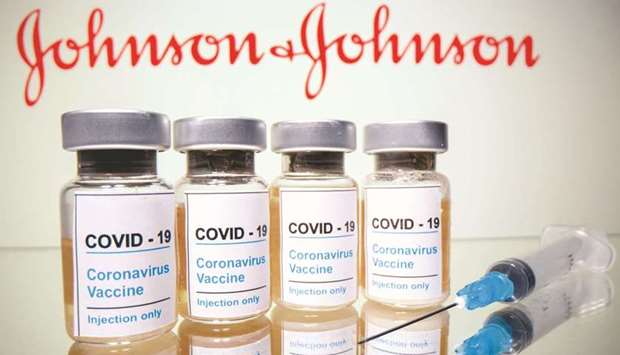India has approved Johnson & Johnson’s single-dose Covid-19 vaccine for emergency use, health minister Mansukh Mandaviya said in a tweet yesterday, but the company said it was too early to give a delivery timeline.
The pharmaceutical giant had applied for emergency use approval of its vaccine, the company had said yesterday. The shot will be brought to India through a supply agreement with homegrown vaccine maker Biological E Ltd, J&J had said.
“While we look forward to meeting our delivery commitments it is premature for us to speculate on the timing of our vaccine deliveries,” the company said in an emailed reply to Reuters. Indian health authorities have so far approved the use of vaccines developed by AstraZeneca (AZN.L), Bharat Biotech, Russia’s Gamaleya Institute and Moderna (MRNA.O).
Despite the approval of Moderna’s vaccine in June, not a single dose has yet arrived due to wrangling over legal protection sought by the company. It is unclear if J&J has reached an agreement with the government over legal concerns. Fellow US company Pfizer has yet to seek permission for use of its vaccine in India.
“This decision was based on topline efficacy and safety data from the Phase 3 ENSEMBLE clinical trial, which demonstrated our single-shot vaccine was 85% effective in preventing severe disease across all regions studied, and showed protection against Covid-19 related hospitalisation and death, beginning 28 days after vaccination,” J&J said in an emailed statement.
“This is an important step forward in accelerating availability of our Covid-19 vaccine to help end the pandemic.”
Coronavirus cases worldwide surpassed 200mn earlier in the week, according to a Reuters tally, as the more-infectious Delta variant strains healthcare systems. India has reported an average of 30,000 to 40,000 new coronavirus cases every day since July.
Although daily cases have dipped from a high of 400,000 at the peak of the second wave, the federal government has warned that the danger has not yet abated.
India has administered 501mn vaccine doses, the largest of any country after China, but little over 10% of its adult population has been inoculated with both doses.

(Representative photo)
